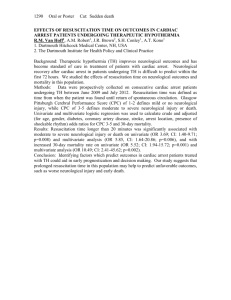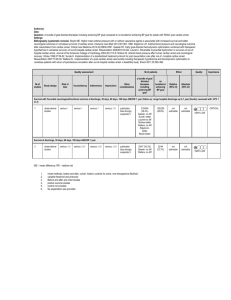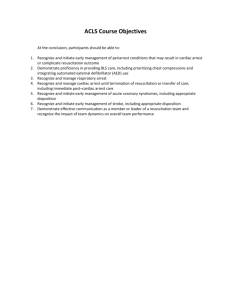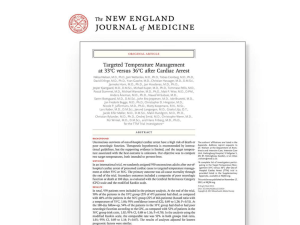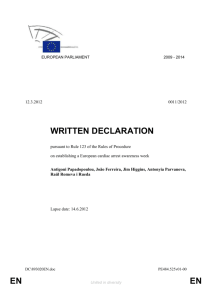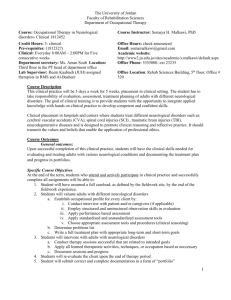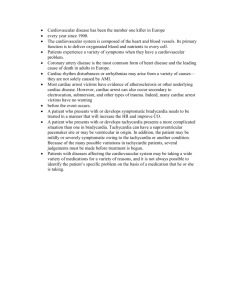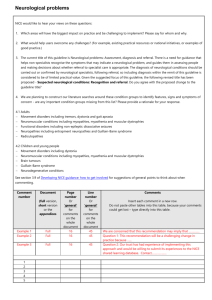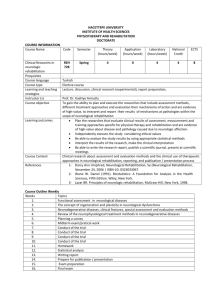or inotrope use during therapeutic hypothermia on neurologic
advertisement
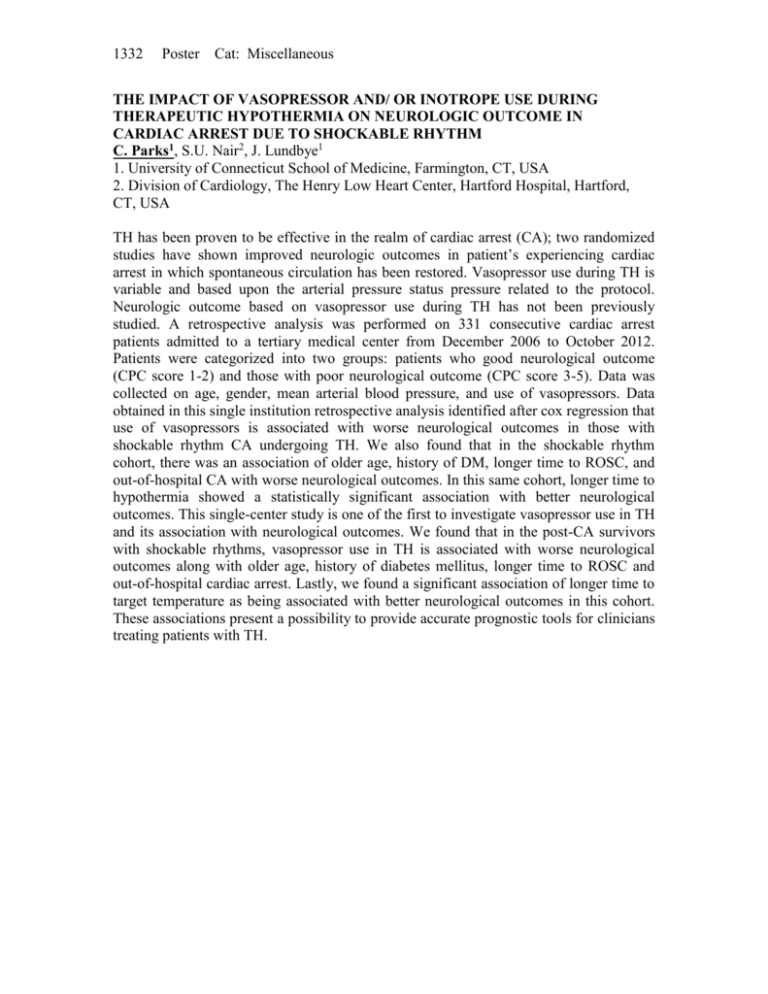
1332 Poster Cat: Miscellaneous THE IMPACT OF VASOPRESSOR AND/ OR INOTROPE USE DURING THERAPEUTIC HYPOTHERMIA ON NEUROLOGIC OUTCOME IN CARDIAC ARREST DUE TO SHOCKABLE RHYTHM C. Parks1, S.U. Nair2, J. Lundbye1 1. University of Connecticut School of Medicine, Farmington, CT, USA 2. Division of Cardiology, The Henry Low Heart Center, Hartford Hospital, Hartford, CT, USA TH has been proven to be effective in the realm of cardiac arrest (CA); two randomized studies have shown improved neurologic outcomes in patient’s experiencing cardiac arrest in which spontaneous circulation has been restored. Vasopressor use during TH is variable and based upon the arterial pressure status pressure related to the protocol. Neurologic outcome based on vasopressor use during TH has not been previously studied. A retrospective analysis was performed on 331 consecutive cardiac arrest patients admitted to a tertiary medical center from December 2006 to October 2012. Patients were categorized into two groups: patients who good neurological outcome (CPC score 1-2) and those with poor neurological outcome (CPC score 3-5). Data was collected on age, gender, mean arterial blood pressure, and use of vasopressors. Data obtained in this single institution retrospective analysis identified after cox regression that use of vasopressors is associated with worse neurological outcomes in those with shockable rhythm CA undergoing TH. We also found that in the shockable rhythm cohort, there was an association of older age, history of DM, longer time to ROSC, and out-of-hospital CA with worse neurological outcomes. In this same cohort, longer time to hypothermia showed a statistically significant association with better neurological outcomes. This single-center study is one of the first to investigate vasopressor use in TH and its association with neurological outcomes. We found that in the post-CA survivors with shockable rhythms, vasopressor use in TH is associated with worse neurological outcomes along with older age, history of diabetes mellitus, longer time to ROSC and out-of-hospital cardiac arrest. Lastly, we found a significant association of longer time to target temperature as being associated with better neurological outcomes in this cohort. These associations present a possibility to provide accurate prognostic tools for clinicians treating patients with TH.
